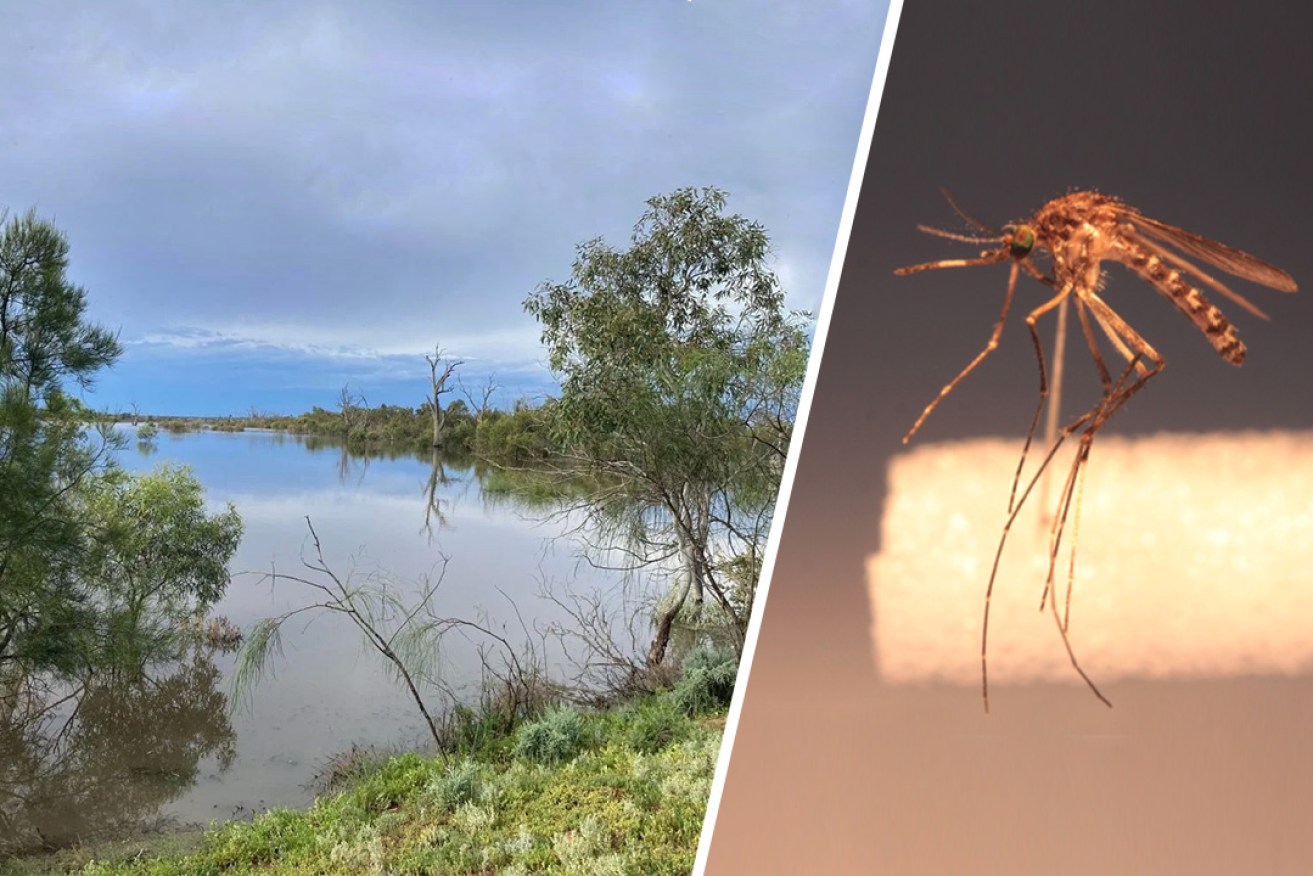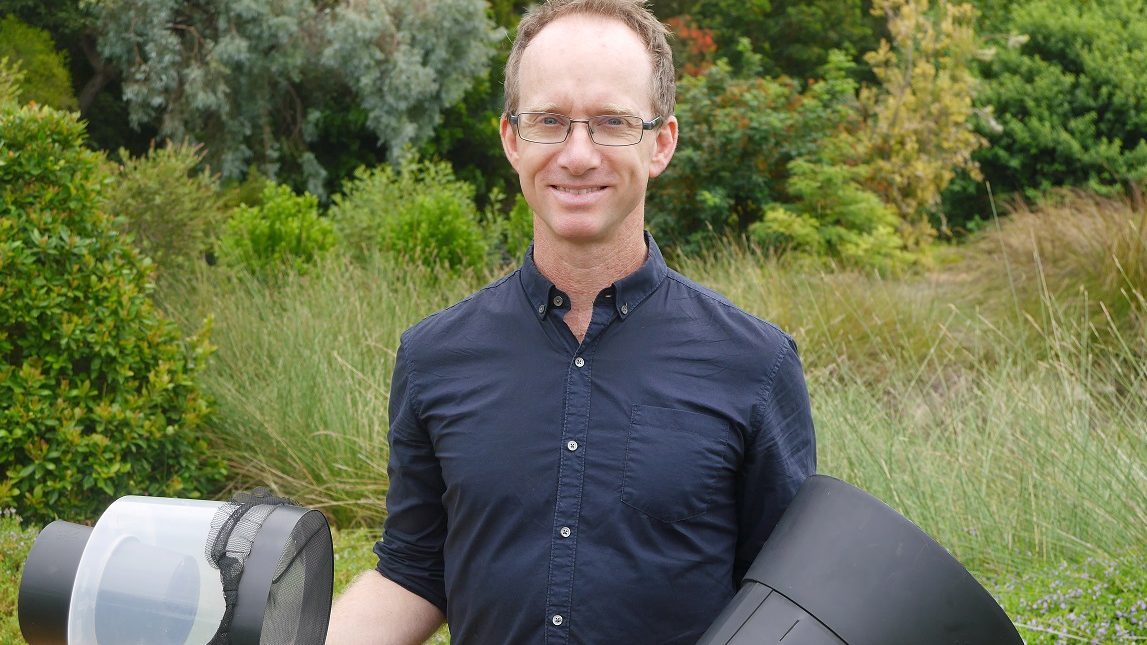River Murray mozzie peak tipped for February
Flooding River Murray swamps and backwaters are breeding swarms of mosquitoes – including carriers of Japanese and Murray Valley encephalitis, Ross River and Barmah viruses.


A River Murray backwater (photo supplied), and a banded mosquito which can carry Japanese encephalitis virus. (Photo: inaturalist mozzie monitors). Image: Jayde Vandborg/InDaily
UniSA expert in mosquito-borne disease Professor Craig Williams forecast record numbers with about 12 species – including the banded mosquito which can carry the deadly Japanese encephalitis virus – breeding in backwaters and swamps as floodwaters reached usually parched regions.
“Just two centimetres of water seeping into a grassy depression can breed thousands and thousands of mosquitoes (in a seven-day cycle),” Prof Williams said.
He said the last time flood waters were comparably high was in 1974, when health authorities in South Australia and Victoria noted a spike in cases of the potentially deadly Murray Valley encephalitis.
“There’s probably more mosquitoes now than we’ve ever had and it’s likely to stay that was with the warm weather assisting breeding conditions,” he said.
More were expected as water recedes and pools of water left in flood plains create ideal breeding spots in warmer temperature, sites that are usually parched in hot summer weather.
“February will probably be our mosquito number peak,” Prof Williams said.
“Around the River Murray most of the time, it’s not a place where mosquitoes tend to breed. If they lay eggs and have their wrigglers in the river there are too many fish to eat them, the flows are too fast, it’s too deep.”
Of particular concern is the banded mosquito, a carrier of the deadly Japanese encephalitis virus that has killed two people and hospitalised nine in South Australia. Around one in 250 people who are infected with JEV will develop an inflammation of the brain that can cause damage to the nervous system and death.
This current virus outbreak in Australia is the first in 25 years, being last detected in the Torres Strait in 1998.
The banded mosquito can also transmit Murray Valley encephalitis, Ross River and Barmah Forrest viruses.
Prof Williams said the State Government is trapping mosquitos to predict numbers, along with help from citizen scientists.

Prof Craig Williams is helping monitor soaring mosquito numbers along the flooding River Murray. Photo: supplied
A Mozzie Monitors citizen’s science Facebook site has also been established with numerous reports of growing numbers of mosquitoes throughout the state.
Riverland Chaffey MP Tim Whetstone said mosquito numbers were high, but so too were those of dragonflies, birds and frogs.
But he said landowners should ensure they get a Japanese encephalitis virus immunisation shot.
SA Health figures show that from January 1 this year there have been 212 Ross River virus infections and five cases of Barmah Forrest virus infection, but no cases of Murray Valley encephalitis virus infection yet recorded.
Almost 15,500 South Australians have been vaccinated for JEV since March 1. Riverland residents, emergency service workers and shack owners are all eligible for a jab.
Health Minister Chris Picton said earlier this month that several thousand holiday homes would be flooded along the River Murray and the vaccine would help those needing to spend time outdoors cleaning up homes as water recedes.
River Murray region stores are selling large numbers of mosquito repellents but Prof Williams advised locals to avoid gadgets or arm bands being advertised to keep mosquitoes away, instead recommending a good repellent and wearing light, loose clothing.




